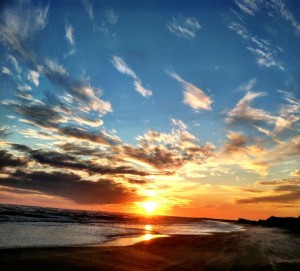fear factors
What are you afraid of? Do you remember being afraid of the dark as a child? What changes? What makes us fearful of some things but not of others?
Fear Factor is an American sports stunt/dare reality game show. Imagine, having to decide on national TV if you have the guts and determination to face your most primal fears. http://www.imdb.com/title/tt0278191/
It is always amazing to me how different we are in our fears. Fear is the ability to recognize danger leading to an urge to confront it or flee from it (also known as the fight-or-flight response) but in extreme cases of fear (horror and terror) a freeze or paralysis response is possible. According to surveys, some of the most common fears are of ghosts, the existence of evil powers, cockroaches, spiders, snakes, heights, water, enclosed spaces, tunnels, bridges, needles, social rejection, failure, examinations, public speaking, flying, clowns, intimacy, death, rejection, people, and driving. In 2005, the top ten fears of adolescents were : terrorist attacks, spiders, death, being a failure, war, heights, criminal or gang violence, being alone, the future, and nuclear war. Although fear is learned, the capacity to fear is part of human nature. It is a survival trait called preparedness that has persisted through natural selection. Aphobia is the temporary loss of fear, induced by the release of neurochemicals in the brain which leads to a specific altered state of consciousness called the battle trance. When the life of a child, family members, or members of a soldier’s unit are more important than personal survival, it triggers the temporary loss of fear. The state of battle trance, which can be induced by rhythmic drumming, singing, dancing, body painting, and the use of certain substances, allowed them to lose their individuality, obtain collective identity, and to fight together as a unit without feeling fear and pain, neglecting their personal safety for a more important reason. Unlike the feel of pain, which can be fully absent in some human conditions, there is no such condition as congenital absence of fear (although psychopaths are known to have a much lessened feeling of fear).
There is a chapter on phobias, the most common mental disorder in the US, in the DSM-IV-TR, psychiatric manual. A phobia is a type of anxiety disorder. It is a strong, irrational fear of something that poses little or no actual danger.
Simple phobia is divided into five types: animal type (fear cued by animals or insects), natural environment type (fear cued by an object in the natural environment, such as heights, storms, water, or the dark), B-I-I type (fear cued by seeing blood, injury, or receiving an injection), situational type (fear cued by specific situations such as driving, tunnels, bridges, enclosed places, or flying), and other type (fear cued by other stimuli, such as loud noises and costumed characters as well as situations that could lead to illness, choking, or vomiting). ( LeBeau, et al., 2010)http://www.dsm5.org/research/documents/lebeau_sp.pdf
There is evidence of familial vulnerability to particular fears with some studies estimating hereditability at ~50%. Fear is inherent and learned through direct traumatic conditioning, vicarious observation of someone else modeling fears and informational transmission from someone else’s fears, all developing unique life experiences and subsequent fears. Because fear is more complex than just forgetting or deleting memories, an active and successful approach involves a person repeatedly confronting their fears. By confronting their fears— in a safe manner— a person can suppress the fear-triggering memory or stimulus. Known as “exposure therapy”, this practice can help cure up to 90% of people, with specific phobias. So, if we took a survey of every one of us, do you think we would name the same #1 fear? I don’t think so, not in a million years. Like these doors? I wouldn’t be afraid to open them.
So, if we took a survey of every one of us, do you think we would name the same #1 fear? I don’t think so, not in a million years. Like these doors? I wouldn’t be afraid to open them.
Some people fear the unknown and worry about living. When they give into these fears, it ends their life. They are too scared to take the path they want to, because of what may lie ahead. What’s the worst thing that can happen? You might die. Anything you are taking a real risk with , could kill you. People who are most firm in their faith and attend religious services weekly are the least afraid of dying.
Are they fearless? Are they risk takers? Maybe, maybe not. What does their faith include? The teachings of some religions offer forgiveness for all risk taking behaviors, so this group would be fearlessly forging ahead, because they have no fear of the worst case scenario – death. Another group who believe that your adherence to the principles and practices espoused in the Ten Commandments, would be taking no chances with illegal, immoral or unethical “dangerous situations” that might affect their immortal soul. Maybe, that’s why Mother Theresa was unafraid of being exposed to HIV or TB. There is a difference between divine protection( while doing good) and unnecessary exposure.
What is the difference between a fear, a phobia and a real risk? How many of us know someone who takes their life in their own hands ( in their mind) every time they fly? How many of your friends are deathly afraid of “needles”, such that they pass out at the sight of their own blood? Were they really taking a big risk?
How do I think I came up with my unique list? I had some things on the list, that have been removed. I wonder, sometimes, if anything on my list is secure! Gone are : fear of the dark, flying, heights, claustrophobia, dogs, snakes, test taking, failure, the unknown, evil and death. I have never been afraid of natural events like the weather, ie: bad storms, hurricanes or lightning. I recall as a child, my mother would take all these things in stride, telling us to “be quiet during God’s work” and of course, nothing ever happened so I have been conditioned to trust a higher power to protect me. Sitting on the front porch swing in a torrent of lightning and rain, with the change in the atmosphere brings back wonderful childhood memories. I am not afraid of magnificent bridges, the higher the better, what a view! I am not afraid of people or criminal activity, since I leave my doors unlocked and lightly secured when I am gone. What am I still afraid of? Things I haven’t done. There is no way that I am going sky diving, but my best friend loved it. I have never learned to swim, so I am afraid of being underwater.
Have you ever met a “careful risk taker?” This is a person who knows the risk and takes precautions, but fully intends to enjoy what they know is risky behavior. Why would we choose to take risks with things we KNOW are dangerous? We are conditioned by our experiences, so the more often we flirt with danger and don’t get hurt, the more we believe there is no danger. That’s part of the risk taking that comes with the job and reinforces certain occupations, like Nascar drivers and local firemen.
Are you risk averse, risk sensitive, risk seeking, risk taking? What is your tolerance for risk and what kinds of risk do you find the scariest? Face your own primal fears,determine your fear factors and risk tolerance. Every decision carries its own set of risks. Make wise choices.

Comments are closed, but trackbacks and pingbacks are open.